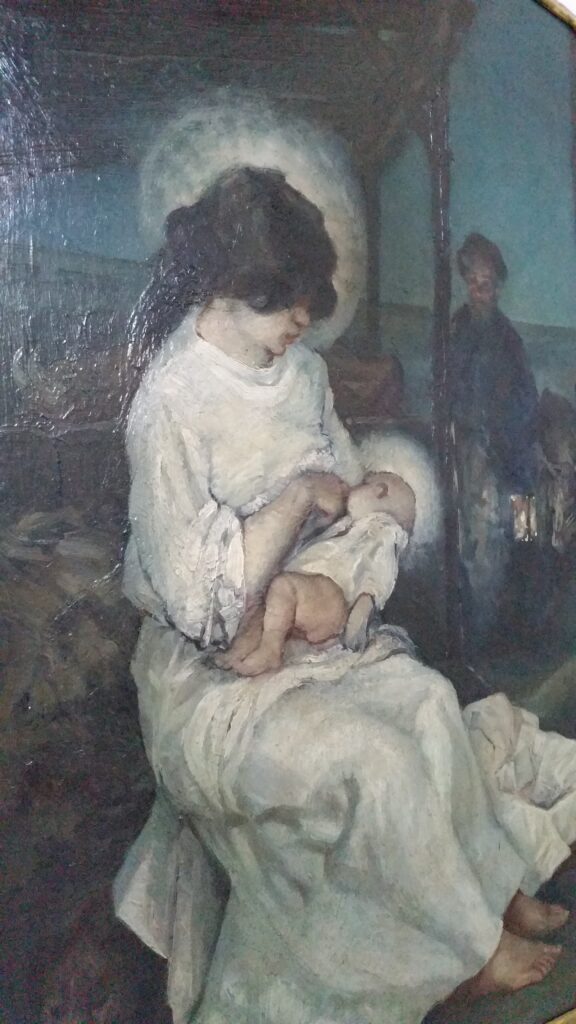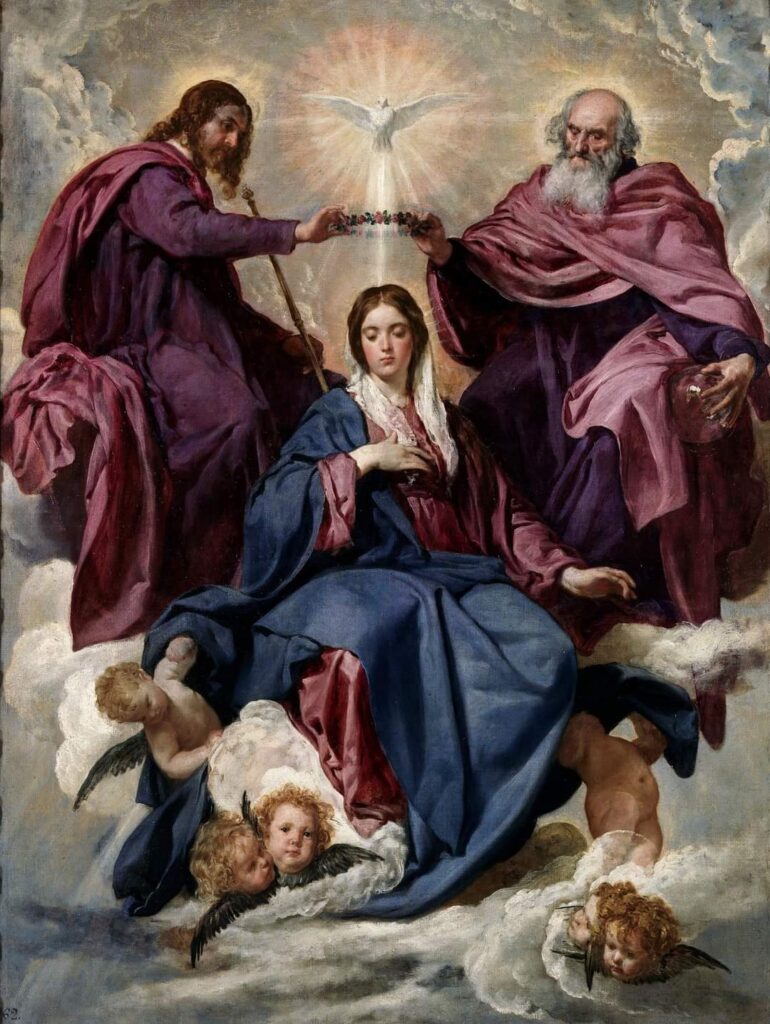+ ‘Behold, from henceforth, all generations will call me blessed’.
If you want to know why we are celebrating Mary today, you can see it in this one liner from her song in Luke’s Gospel, the Magnificat. It is the song of the lowly lifted up, of God’s mercy lifting the humble person above the proud and powerful. The reason for this is given in the second reading, when Paul sums up Christianity: “when the fullness of time had come, God sent his Son, born of a woman, born under the law, in order to redeem those who were under the law, so that we might receive adoption as children”.
We call Mary blessed because she said Yes to God and because of this Jesus was born and we were given access to heaven. Mary is the Mother of God. No Mary, no Jesus. No Mary, no salvation. Therefore she can say “all generations will call me blessed”.
Christianity is not just a way of being kind to people, it is a belief that God became human in Jesus to unite humanity and the whole creation to God in love. If Mary is not the Mother of God, then this didn’t happen, she was just the mother of some random first century Jewish teacher, and our faith is built on a lie. No Mary, no Jesus. No Mary, no good news of salvation.
So, Mary is the guarantee of the Good News of salvation. This means she is not just for Roman Catholics but for all Christians. We can see this in our own Church where she is central, with baby Jesus, in the East Window and present in the icon where we light our prayer candles. So, what do we celebrate today? Why do we have this Sunday in summer when we think about Mary’s role?
We have already partly answered this. Mary’s importance is that she is the mother of Jesus who is our God and Saviour but being a mother is not just about a birth. Some Christians want to leave Mary in the Christmas cards, but that shows a fundamental misunderstanding of humanity, motherhood and Christianity.
Mary is there throughout Jesus’ life. When she consented to his conception. When she carried him in her womb for nine months. When she gave birth to him and initiated him into the religion of Israel. While he grew up, as seen in his getting lost on the family pilgrimage to Jerusalem and being found in the Temple precociously talking theology with the elders. When he broke away to follow his own path as a teacher. At the key moments she was always there. When all his friends but John ran away, she was there by his cross. She experienced his resurrection (can you imagine he didn’t appear to her?), and was there with the Apostles when the Holy Spirit came down at Pentecost at the birth of the Church.
Now, today, at the end of her own earthly life, she is taken up, assumed body and soul, to be with him in heaven. Mary stays close to Jesus in heaven. Eastern Christians call today her Dormition, her death or falling asleep, whereas we Western Christians say Assumption, taking up into heaven. She is the first Christian to follow Jesus through the waters of death to the fullness of heaven, body & soul. So again we don’t leave Mary in the Christmas cards, but her life is the model for the Christian, the disciple, the one who says yes to Jesus and follows him to the end.

In our final hymn we sing of Mary’s whole life, leading to today when, as we will sing, she is ‘raised on high and crowned with grace’. Just as being a mother is not just about a birth, it is an investment in the whole life of your child, so a death is not a solitary event, it is the summary of a life – hence the idea that on your deathbed your whole life flashes before you. Today we join all generations of Christians in calling Mary blessed because her whole life was a ‘yes’ to God.
By saying ‘yes’ to God, Mary cooperated with God in our salvation and she continues to do that in heaven. Even now in our Christian lives it is true: no Mary, no Jesus. In our first hymn, where we repeated the Angel Gabriel’s words ‘Hail Mary’, we asked her prayers for our families, for the sick and for the aged and those who mourn in secret. Jesus Christ is God, he is not jealous, he wants us all to cooperate with him in praying for each other and for the world just as his mother does in heaven. So today, here and at the cathedral this afternoon, where the anthem is Parsons’ ‘Ave Maria’, let us thank God for Mary, Mother of God and, as we are adopted as God’s children, our mother also. We ask her prayers that we, like her, might say ‘yes’ to God and so share his life in all its fullness.


